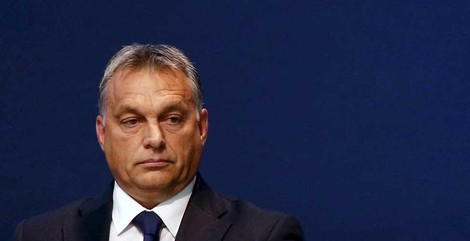Your podcast discovery platform
Curious minds select the most fascinating podcasts from around the world. Discover hand-piqd audio recommendations on your favorite topics.

piqer for: Globalization and politics Global finds
Sezin Öney, originally from Turkey, is based in Budapest and Istanbul. She her journalism career as a foreign news reporter in 1999 and she turned into political analysis as a columnist since 2007. Her interest in her main academic subject area of populism was sparked almost decade ago; and now she focuses specifically on populist leadership, and populism in Turkey and Hungary. She studied international relations, nationalism, international law, Jewish history, comparative politics and discourse analysis across Europe.
A Man For All Seasons: Viktor Orban
Hungary headed for the ballots on 8 April 2018 and, for the first time in history, these elections have become a news item all around the world. If you are going to be reading one article on Hungarian politics, this is it.
Nick Thorpe has been residing in Hungary for decades and knows Prime Minister Viktor Orban and his party, Fidesz, only too well. In this graphic article, Thorpe takes us on a social and political voyage, describing the changes that Hungary, this almost 10 million people-populated country, has undergone since the 1980s. The main character of this odyssey is Viktor Orban: as the country changes, so he does, and eventually he changes the country itself.
Thorpe provides interesting clues to Orban's persona:
The young Viktor was a bright pupil and a talented footballer. The trainer’s notes for the Felcsut team read: “Viktor Orban: Forward — quick thinker, fast shooter, dynamic passer — shows potential.”
Orban was also a quick "adaptor". When he was young, he was a liberal democrat. He "came from a Calvinist Protestant background but is thought to have been an atheist in his youth".
He saw an opportunity in uniting the right wing under his leadership in the 1990s, so her recreated himself.
He had opposed the Pope’s visit to Hungary in 1991 and mocked Christian Democrats in parliament, but he now realised he would have to be a Christian. His decade-long marriage to Aniko Levai was blessed in a Calvinist church ceremony in 1996. All his five children were baptised.
And since 2015, he has been recasting himself as the gatekeeper of Europe: defending national identities, warding off migrants and playing the ball against the European Union.
The April elections were just one turning point in Orban's three decades long political career. Time will show if this is the beginning of the end for his career, or if he will be featuring as the Trojan horse inside the EU — scoring his dream goal.
